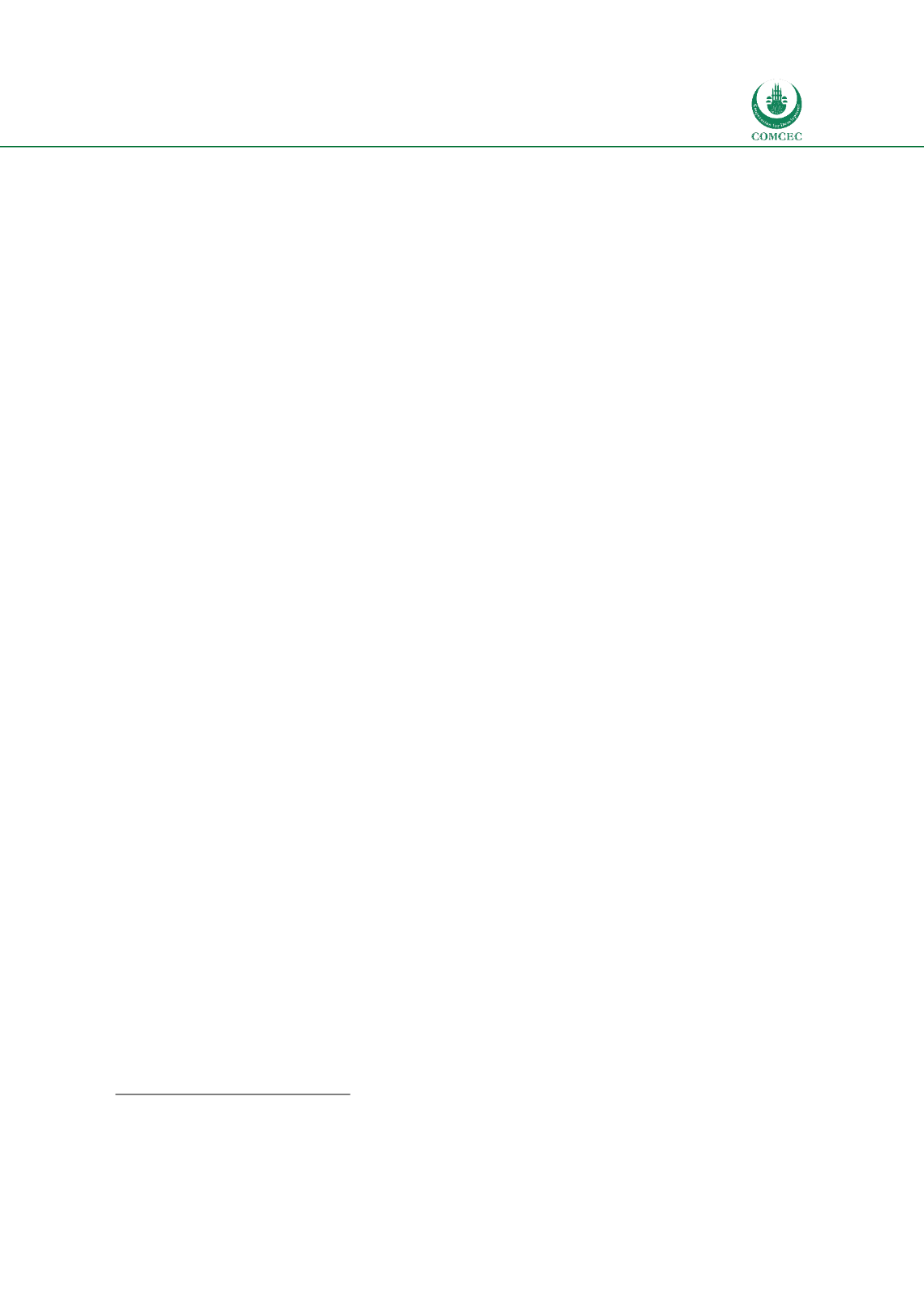

National and Global Islamic Financial Architecture:
Prolems and Possible Solutions for the OIC Member Countries
163
4.12.6. Consumer Protection Architecture
Consumer Protection and Financial Literacy
There are no dedicated laws/regulations to protect consumers of the financial sector in
particular. The available consumer protection laws are very general and are mainly for the
retail sector (not for the financial sector). There is no dedicated institutional
mechanism/arrangement where consumers can address unfair treatment. However, those who
are treated unfairly may resort to the Central Bank or any respective regulator that is
governing the sector under which the unfair treatment has occurred. There is no dedicated
Ombudsman office that deals with customer complaints related to Islamic finance; IFIs will
have the same arrangement available for the conventional FIs – i.e. complaints are referred to
the respective regulator of the subject sector.
40
The confidentiality of customer information by
banks is not specifically provided for under the Banking Law, but the principle is recognized as
a customary banking practice, and, implicitly, under certain regulations issued by the UAE
Central bank. However, the Central bank has wide powers to obtain information (Khan and
Walker, 2010).
IFSB standards on Governance and Conduct of Business Standards are currently not used by
regulators. Prospectus disclosure on risk factors is more or less what is available in regards to
the present guidelines that are meant to protect sukuk investors from risks faced (risk
exposure to assets/obligor, liquidity risks, etc.). There are no specific schemes for financial
literacy in the UAE in general. As such, there no specific Islamic financial literacy schemes for
consumers.
Deposit Insurance
While there is no formal deposit insurance scheme, the Central bank has guaranteed deposits
with UAE banks and UAE branches of foreign banks since 2009 (Khan and Walker, 2010, 588).
PSIA and conventional deposits are treated in the same manner under this scheme.
41
4.12.7. Human Capital & Knowledge Development Framework
While there is the feeling that adequate personnel in the country to cater to the needs of the
Islamic financial sector at different levels (such as regulatory bodies, IFIs, law firms, etc.) is
lacking, the educational institutions and other public bodies supported by government that are
contributing to enhancing the knowledge and skills for the Islamic financial sector are very
limited. There are some universities and institutes such as Hamdan Bin Mohammed Smart
University, Zayed University and Sharjah Islamic Center that are currently offering dedicated
courses/certifications in Islamic banking and finance. The initiatives in the private sector to
enhance the knowledge and skills for the Islamic financial sector are also limited. Ethica
Institute for Islamic Finance is a fully-fledged institute that is dedicated to enhancing the
knowledge and skills for the Islamic financial sector. Furthermore, on-job training conducted is
conducted in the IFIs internally or through Sharia consultancy firms such as Dar Al Sharia,
Minhaj Advisory and Al Ma’aali Consultancy.
40
The source of information is from interviews.
41
The source of information is from interviews.
















